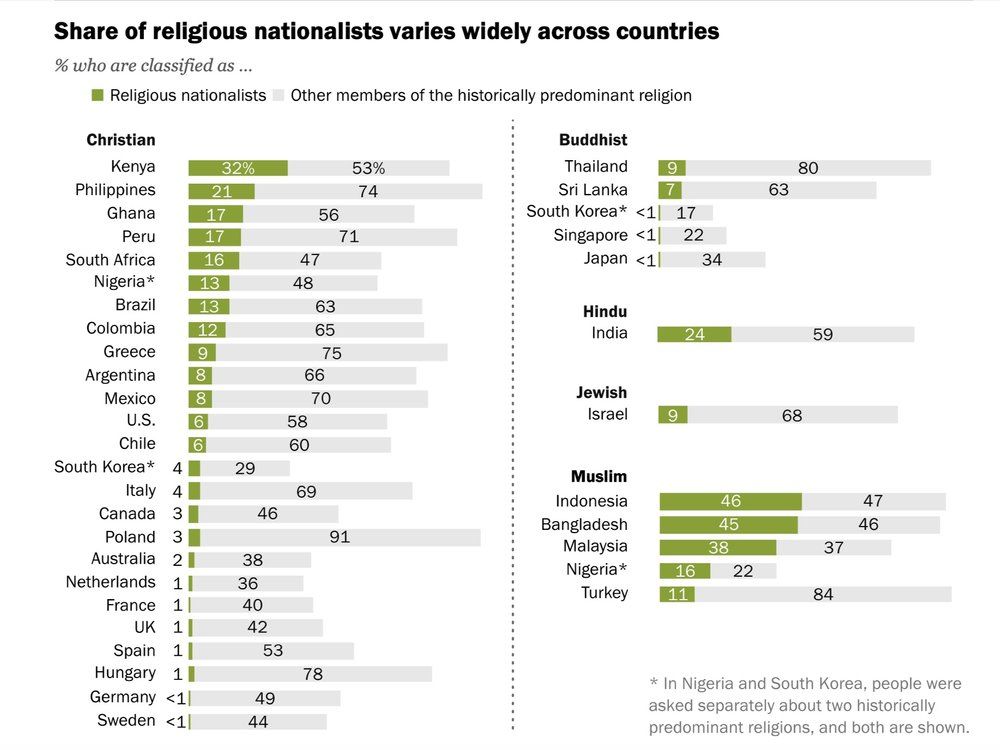God, Country, and Controversy: How America's Subtle Religious Nationalism Speaks Volumes

In a revealing new study by the Pew Research Center, the United States demonstrates a surprisingly low level of religious nationalism compared to many other nations. The research found that merely 6% of American adults identify themselves as religious nationalists, offering a nuanced perspective on the intersection of faith and national identity in the country.
This statistic highlights the complex and diverse nature of religious and patriotic sentiments in the United States, suggesting that most Americans maintain a more balanced view of their national and religious affiliations. The relatively small percentage of religious nationalists indicates a broader tendency towards religious pluralism and a separation between religious beliefs and national pride.
The Pew study provides valuable insights into the social and cultural landscape of the United States, revealing the subtle ways in which religion and national identity interact in contemporary American society. By showcasing the limited prevalence of religious nationalism, the research underscores the country's commitment to religious freedom and diverse perspectives.

